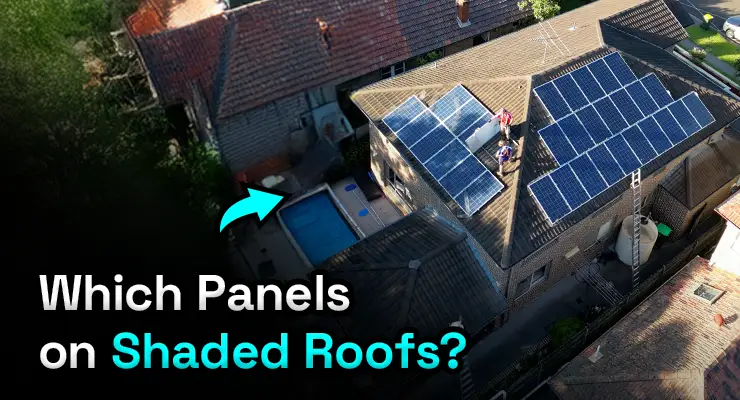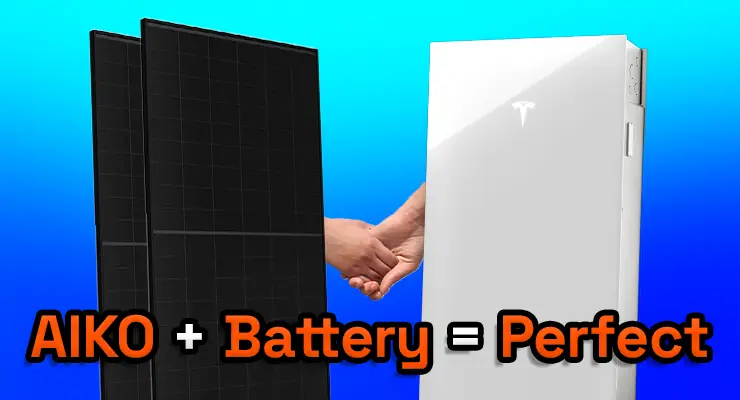Fast read
Choosing the solar system and battery sizes (if going with a solar battery combo) that are optimal for your energy needs when preparing to install a solar system is critical.
It is recommended to self-consume the direct energy produced during daylight hours to get the most out of a solar system. Doing so prevents you from paying your energy retailer's high electricity bills.
To determine the size of your solar system, you must first understand your daily energy usage. This can be found by looking at your kWh consumption data from your electricity bill or through a smart meter. The peak hours of sun in your area must also be considered.
To determine the size of a solar battery system, you must first understand why you want one. Common reasons include reducing reliance on the grid, backup energy for power outages, and reducing electricity costs.
To determine the size of a solar battery system, you must first understand why you want one. Common reasons include reducing reliance on the grid, backup energy for power outages, and reducing electricity costs.
What size solar and battery system do I need?
If you are planning on installing a solar system on your roof, the most critical question that should come up is what solar system size you need, and if you are considering purchasing a solar battery combo, what size battery would be best for your energy situation?
How to size your solar system alone
Make the most of your solar investment by utilising the energy generated during daylight hours within your home. This approach directly translates to significant cost savings, as it enables you to sidestep the need for expensive power from energy retailers.
While sending excess energy back to the grid earns you credits, the monetary value tends to be considerably lower than the cost of purchasing energy from retailers. Using solar power saves you money and gives you more control over the value of the energy.
Energy retailers often charge premium rates for electricity, making them a costly alternative compared to the clean and affordable energy produced by your solar PV system. The key lies in prioritising the use of your solar power on-site, ensuring that you reap the maximum benefits of your investment.
This strategic shift not only helps you save money but also promotes energy independence. By relying on your solar power, you reduce dependence on external energy sources, creating a more resilient and sustainable household energy strategy. In essence, by embracing self-consumption, you optimise your solar investment, contribute to a greener future, and pave the way for a cost-effective and sustainable energy model for your home.

Energy usage
To determine the size of your solar system, you will first need to understand a few main variables, the major one being electricity usage on a day-to-day basis. To determine this, you must first gather your kWh consumption data from your electricity bill.
It is recommended that you look not only at your recent bill but also at your bills from the past 12 months to gain an overall understanding of energy consumption. This will allow you to work out your average monthly consumption, which you can then use to work out your average daily consumption.
However, if you have a smart meter, you can find this information much more easily. After this is done, you will want to understand your area’s peak hours of sun. This varies greatly depending on your location, so make sure you put aside a reasonable time for research.
You can then work out your solar system size by simply taking your daily kWh consumption and dividing it by peak sun hours to work out the kW output. You then divide this number by your solar panel efficiency (the ones you plan to get) to determine how many panels you need. On the other hand, you can use our solar system calculator to estimate solar system sizing accurately.
Solar and battery combinations
So now that you have a general idea of how to determine your solar system size and how many panels you need, let’s explore batteries, as they are usually determined by solar system size. To size a solar battery system, you must first understand why you want one. In many cases, it’s several reasons. Usually, these are the top three;
- Reduce reliance on the grid (energy independence);
- Backup energy for power outages;
- Reduce electricity bills.
How to size your solar battery?
If the above cases sound like you, the next step is to determine what size battery you need that works well with your solar system. To size your solar battery system, you need to understand how much energy your solar system produces, how much energy you use, and how much is being sold back to the grid at a low feed-in tariff.

- To size your battery system, you must first understand how effective your solar power system is.
- This allows you to determine how much energy you use directly during the day from this system.
- After this, you can determine how much energy you sell back to the grid.
- Once you understand this number, you can determine how much energy you would be storing in a battery if you purchase one, giving you an estimate of the size of the battery storage system you need.
In summary
Feel confident in choosing the right solar battery size for your home by using our handy battery storage size calculator. Whether you’re planning for a solar system, a combo of solar and battery, or just focusing on batteries, understanding your energy use is key.
Make sure you know when you use energy during the day and how much solar energy you’re not using. This knowledge helps you pick the perfect size for your solar and/or battery system, ensuring you get the most out of your solar setup. This way, you not only save on energy costs but also make your renewable energy investment super energy efficient.



